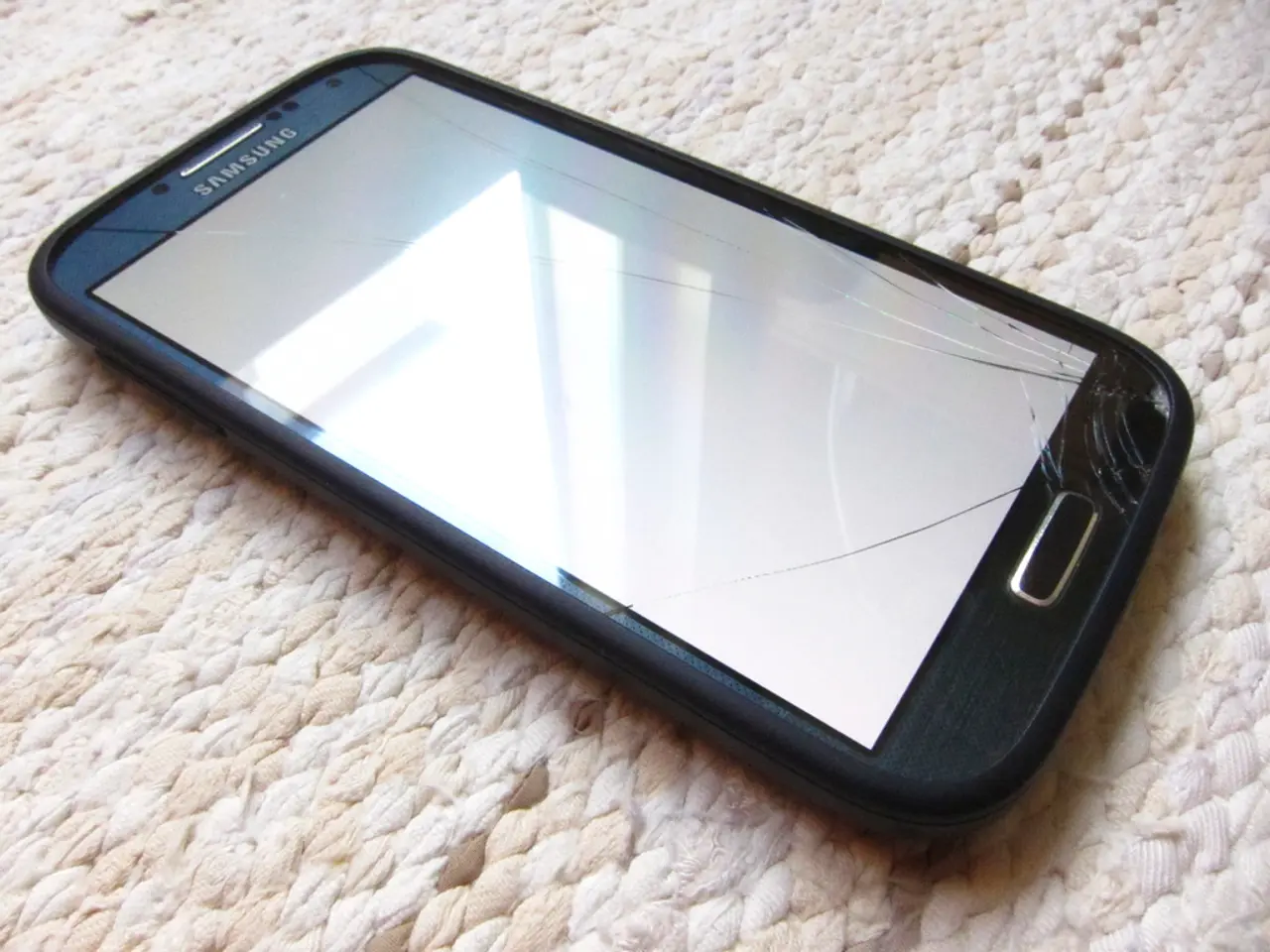Pondering over grabbing a complimentary iPhone 16 Pro via your telecommunications provider? Avoid the costly oversight I encountered when agreeing to the service contract
In the world of smartphone deals, it's not uncommon for customers to seek attractive offers, such as trading in an old device for a newer model and paying the remaining balance in cash. However, a recent case sheds light on a less-known aspect of these deals - the Purchase Money Security Interest (PMSI).
The Galaxy S23 Ultra, priced originally at $1,400, was made more affordable with AT&T's offer, reducing the monthly payment to $38.34 for 36 months. But, the customer, unaware of the PMSI, found themselves in a predicament when they tried to sell the device on Swappa. The sale was rejected due to a lien on the phone from AT&T.
A PMSI is a legal claim that mobile network carriers hold on the phone sold under a payment plan, securing the loan or credit extended for purchasing that device. This means the carrier retains a legal right to the device until the purchaser completes all payments under the plan. If the buyer tries to sell the device prior to fully paying off the balance, the carrier can repossess the phone or enforce their rights to the collateral, the smartphone, since it secures the outstanding debt.
This PMSI arises because the creditor (mobile network carrier) advances credit or financing intended to purchase the specific item (smartphone) that secures the debt. Until the phone is paid off completely, the carrier holds a legal claim to the phone as collateral, even if the buyer physically possesses it. This prevents the purchaser from freely selling or transferring the smartphone before full payment, as any buyer of the phone may face repossession or claims by the carrier due to the PMSI.
PMSIs are recognized under legal frameworks such as the Personal Property Securities Act (PPS Act) in Australia and similar Uniform Commercial Code provisions in the U.S. They grant priority rights over other creditors in case of debtor default. In contractual terms, the purchase agreement typically includes the creation of a PMSI in the smartphone to secure the payment obligations.
It's important to note that not all carriers place liens on devices. For instance, Verizon does not, but has a purchase money security interest clause similar to AT&T's in their contract language. T-Mobile's contracts may contain a purchase money security interest clause, but it was not found in the current version.
The lesson here is clear: while attractive deals may seem too good to be true, it's crucial to understand the terms and conditions, especially those related to PMSI. Before making a decision, always ensure you fully comprehend the implications of any contract you sign. After all, knowledge is power, and in the world of smartphone deals, it could save you from an unexpected predicament.
[1] https://www.law.cornell.edu/cfr/text/12/29.307 [3] https://www.lexisnexis.com/legalnewsroom/banking/b/banking-moves/archive/2016/04/05/what-is-a-purchase-money-security-interest-pm-si.aspx [4] https://www.findlaw.com/legalblogs/bankruptcy/2017/02/what-is-a-purchase-money-security-interest-pm-si.html [5] https://www.law.cornell.edu/cfr/text/12/29.306
Read also:
- Gadgets and Tech Essentials to Outshine Your Studies in the Upcoming Academic Term
- A separate cable linking to an RTX 50-Series GPU could potentially not be attributed to Nvidia for the issue.
- Today's top computer savings: Grab the new iPad M3 for $100 less, or snag a RTX 5080 gaming PC with a $400 discount and a complimentary gaming monitor included.
- Nostalgic Tech Revivals: A Look at 10 Forgotten Technologies making a Remarkable Resurgence







